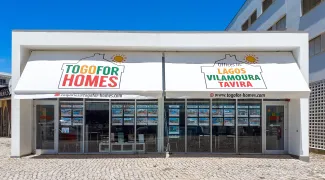(Translated by Google)
The Prime Minister took the country by surprise this Monday, October 2, when he announced that in 2024 he intends to end the special tax for new non-habitual residents (RNH) . After managing to see the controversial More Housing enacted, as part of the preparation for the State Budget for 2024 and in the aftermath of the wave of national demonstrations due to the country's housing crisis, last Saturday, António Costa came to say that the Government decided not to prolong “a measure of fiscal injustice, which no longer is justified and that it is a biased way of inflating the housing market, which has reached unsustainable prices”. Without giving further explanation, the leader of the socialist Executive left several doubts in the air - enough to stir the waters in the sector. From investors to developers: the real estate market reacted immediately, showing signs of concern about yet another measure by the majority Government, which could compromise the health of the sector, without solving the problem of access to housing .
The governor of the Bank of Portugal (BdP) himself has also commented on the prime minister's words, saying that he is not “completely” convinced that programs such as those for non-habitual residents are the problem in the housing market. For Mário Centeno , former finance minister under António Costa and former president of the Eurogroup, the end of the regime is a political issue.
The Non-Habitual Resident Status (RNH) was created in 2009. It is a special regime that offers a reduction in Personal Income Tax (IRS), for 10 years, to new foreign residents (of any nationality) and to Portuguese citizens who have been emigrating for more than 5 years, “with a view to attracting qualified non-resident professionals to Portugal in activities with high added value or intellectual, industrial property or know-how, as well as beneficiaries of pensions obtained abroad”.
"It is important to emphasize that the RNH does not grant an exemption on all income. It is necessary to distinguish between income originating in Portugal and income from a foreign source. In the case of income from a Portuguese source, no exemption applies", highlights the lawyer João Magalhães Ramalho. In an article published in Expresso , the partner of the Tax team at Telles also explains that:
- this regime only benefits income from work dependent and independent of the application of a 20% IRS rate, but only when it results from the exercise of activities with high added value defined by ordinance;
- in the case of income from abroad, the IRS exemption is applied to some professional income (in some cases the 20% IRS rate), interest, dividends, rents and real estate capital gains (provided that, in most cases, do not originate offshore). But no longer, as regards the majority of capital gains on securities and income from funds, income that is taxed;
- foreign pensions received by registered NHRs from April 1, 2020 are taxed at the IRS rate of 10%.
RNH ends in 2024, but continues for those who already have benefits
“In 2024, special taxation for non-habitual residents will end. Whoever has it will keep it”, said the prime minister in an interview with TVI/CNN Portugal, in an allusion to foreigners residing in Portugal who are already having this tax benefit. According to the leader of the socialist executive, “the measure for habitual residents has already fulfilled its function and, therefore, it makes no sense to maintain taxation for non-habitual residents”.
“There was a time when it was necessary. This measure made sense. In the first ten years, 59% of people who had benefited remained in Portugal, despite the regime having ended. But at this moment it no longer makes sense”, reinforced António Costa.
The prime minister said that the regime is “a biased way” of contributing to real estate speculation, but did not provide further details about what is coming. But so far it is just a political stance, and it is still necessary to wait for the proposed State Budget for 2024 (OE2024) to find out the contours of the new law, according to an official source from the Prime Minister's office to Negócios .
Although the RNH regime ends in 2024 - no more applications will be accepted - those who have already acquired this status will continue to be taxed at the special IRS rate until the end of the ten-year period, explained António Costa. In practical terms, this means that, despite Costa wanting to promote the measure as an immediate solution to housing problems, the effects of the tax regime will still be felt in the country's accounts for another nine years, as it only ends definitively. within ten, in 2033. This is because whoever joins the regime this year acquires the right to be taxed as such for a period of 10 consecutive years.
By the end of last year, more than 74,000 people had already benefited from the non-habitual resident regime , according to the numbers collected by the Court of Auditors (TdC) in its opinion on the General State Account (CGE) of 2022. This is a an increase of around 50% compared to just over 25,000 recorded in 2018. The associated tax expense , according to the aforementioned opinion from the TdC to the CGE of 2022, was around 1,360 million euros that year.




